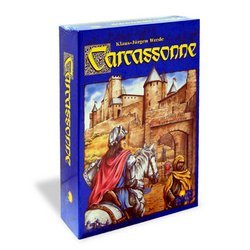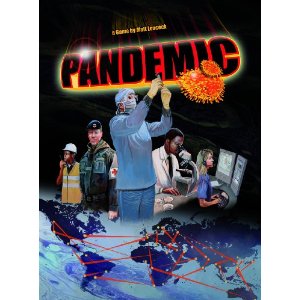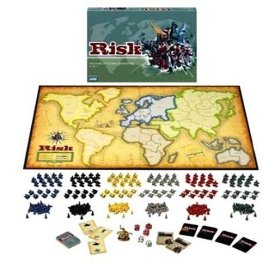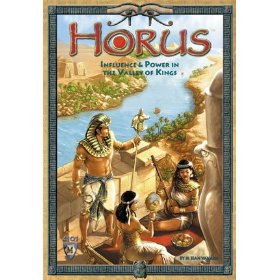Educational Board Games for Homeschool
Can educational board games play a part in your homeschooling curriculum? They most certainly can!
When I first decided to start homeschooling I had some fixed ideas about what that would look like. My children of course had other ideas! I soon came to appreciate the enormous educational value in books, board games and field trips – and now very much base our curriculum around them.
Often games that are designed as educational board games are dull and uninspiring – so I would avoid those that were overtly educational. You children will spot any attempt to turn their game into lesson time – and you won’t get the co-operation you need.
And why spoil things? If you are going to take the time to play a game together then you may as well make it an enjoyable and exciting experience for everyone. Turn instead to those well put together childrens board games that will bring out the best in everybody. I am often asked to recommend educational board games so here are my tips on how to choose a game, and the educational benefits you are likely to see.
How to Choose Educational Board Games
Almost any game will have some educational benefits – from being a team player to learning to be a good loser! Or a good winner! Some board games can really get those creative juices flowing – and help children with basic literacy and numeracy skills.
But best of all are those games that can be incorporated into a homeschool project and mixed with other homeschool resources to provide a unit study program that will keep your children excited about learning.
When you are choosing games, bear the ages of your players in mind but not too strictly. I often find that children can well understand the subtleties of games that should be beyond them, so you can choose a higher age level than usually recommend. This helps in homeschool families as you probably have a mixed age group – no need to play to the lowest level.
Playing harder games keep the older children interested and stretches the younger ones. But go too high and they will get frustrated – so give a helping hand if it’s needed.
Some great educational board games
If your children aren’t reading yet then games without words, such as the Carcassonne game, are ideal. This clever tile based game has been a huge hit in our household for its appeal to all ages. And because it is based on the French medieval town Carcassonne it fits in very well with your Geography or History projects.
Another great ‘wordless’ game that we have enjoyed is the card game Frank’s Zoo – I could suggest that it teaches children about the food chain but I may be stretching things a little.
For geography projects, I would recommend map based games like Risk that use a map for a board. The series of ’10 days in’ games such as 10 days in Asia have beautifully illustrated maps – although we prefer to play the teamwork based game Pandemic. This uses a world map and has given my children a much better appreciation of world geography than any other method of instruction I have tried!
Also keep an eye out for games such as Wildlife Adventure, and the card game Backpacker for further geography help. Two great agricultural based games are Agricola and Settlers of Catan. They are more complicated (and require reading skills) but could successfully be incorporated into a unit study looking at farming. Combine it with a visit to a farm, and a trip to an agricultural museum and you would have the basis for a very interesting project.
Search out books that you could read that would fit into your theme too – the Laura Ingalls Wilder book ‘Farmer Boy’ would be a great addition here.
For history projects, you could start with games like the Horus board game that is based on is based on ancient civilizations and mythology. Or delve into Dutch colonial ascendancy with Dutch Golden Age. Even the (now probably politically incorrect) Battle of the Little Bighorn started us off on a huge discussion of the history of America, so even a slight historical context in a game should spark your homeschooled kids to ask questions.
Other ways to use educational board games
Keep an eye out for unusual games that you believe would spark questions and conversations. Sorry the board game for example almost caused a riot in my home! The children were incensed that they could be sent back to the beginning of the game – even if they had been winning! It caused a lot of discussion about how to design a board game – and what ‘designing rules’ should be.
This of course brings us to another benefit that you can tap into regarding educational board games. After playing for a while children are drawn almost irresistibly into the idea of developing their own game (and I think maybe the spread of make your own Monopoly games means there are lots of grown up ‘children’ around too!). Monopoly is a great example – get the children to design their own version that includes places they know. What will be the property prices of Grandma’s house compared to the local supermarket?
Top Trumps is also a great one to recreate. Get the children to research a topic and develop ‘statistics’ for each card. Even the little kids can do this – we developed a dinosaur version using an old pack of playing cards – and statistics included ‘how scary’ and ‘how big’ – with size being catogarized as small, big or very big!
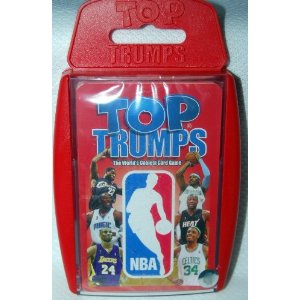
Think outside of the board game box
To my mind, homeschooling is about developing a questioning attitude in your children – and introducing them to the wonderful and varied aspects of the world. A board game can be a great springboard to introducing bits of knowledge that you may otherwise never cover. Do try to incorporate some time to play into your homeschooling curriculum– you will reap the rewards!
More teaching games
Math games
Math games for kids I
Math games for kids II
Free math games for kids III
Other subjects
Educational Board Games For Homeschooling
English teaching game
Phonics board game
Christian Bible study game
Dealing with bad sportsmanship
Thanks to guest author Julie Gilbert
